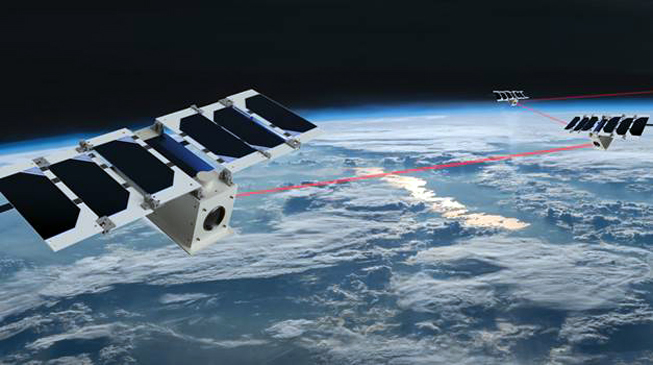Wiseky buys Fossa stake to take IoT into space
- March 24, 2021
- Steve Rogerson

Swiss cyber-security firm Wisekey hopes to take the IoT off the planet following the acquisition of a minority interest in Spanish aerospace company Fossa Systems.
Fossa is developing pico-satellites for low Earth orbit (LEO) IoT services. The investment will serve to develop the Wisesat PocketQube satellite due to launch late this year or early next year.
This should enable secure connectivity for IoT sectors such as aggrotech, autonomous vehicles, EVs, smart cities, drones, robots, smart lighting, servers, computers, climate change monitoring and crypto tokens.
This investment will allow Wisekey to integrate Fossa into its IoT platform connecting all IoT sectors through the development of the satellite. This will be a security-IoT hardened FossaSat-2E satellite designed to drive down satellite costs for the already-small Cubesat size.
Wisekey will offer this technology to its IoT clients in a SaaS model allowing remote and redundant urban IoT communications for companies seeking to connect their assets securely via satellite communication covering large and unserved geographic areas such as oceans, deserts and mountains at affordable prices. Wisekey’s trust and security products integrate into an end-to-end platform that communicates in real time with the satellite by ensuring the authenticity, confidentiality and integrity of the devices, objects, data and transactions.
Wisekey’s Ines platform uses cryptographic algorithms for issuing, managing and validating digital credentials for IoT devices and now those to be connected with the satellite. This platform is scalable to support environments for hundreds of millions of devices and sensors, and able to collect data remotely from the field and transmit to the backend.
Additionally, Ines features entity management for any custom attributes such as identities, group, type, role and life cycle, as well as message security policy management and business rules management. Interfacing via the cloud and connecting devices and applications, Ines can remotely identify credentials and control activation, deactivation, revocation, renewal and secure provisioning.
This can be used in multiple industrial applications to optimise productivity through predictive maintenance on equipment and machinery, create smart homes with connected appliances, and provide critical communication between devices including self-driving cars and lorries and smart homes.
Two initial dedicated demonstrators of the satellite will be the first of a global constellation to provide performance with secure connectivity. Wisesat uses the Fossa PocketQube platform for dedicated constellations and low-cost in-orbit demonstration.
“This strategic investment in and cooperation with Fossa Systems brings Wisekey’s cyber-security and trust technologies to space and reinforces interconnection with other elements of the Wisekey ecosystem platform,” said Carlos Moreira, CEO of Wisekey. “We continue to provide our existing clients with innovations and state-of-the-art technologies to secure identities, data and objects and at the same time seek opportunities to enter new markets across the globe.”
Julian Fernandez, CEO of Fossa Systems, added: “We are pleased to be collaborating with Wisekey to initiate the development of a constellation of low-cost IoT satellites allowing all sorts of IoT secure communications, a segment of satellite communications that has a huge growth potential.”
Wisekey deploys large-scale digital identity ecosystems for people and objects using blockchain, AI and IoT. It has an installed base of over 1.5 billion microchips in virtually all IoT sectors. Its semiconductors produce big data that, when analysed with AI, can help industrial applications predict the failure of equipment before it happens.
Fossa Systems is an aerospace company developing pico-satellites weighing less than 1kg as a vertically integrated service for LEO. It provides satellite systems, launch services, satellite services and consulting. The company has proven flight heritage in space through decoded packets, thanks to its FossaSat-1 mission in 2019.





